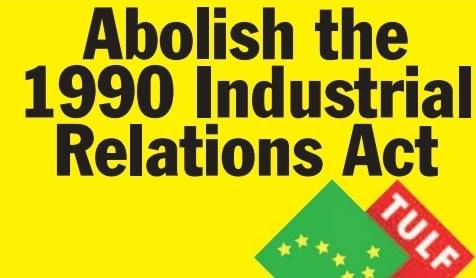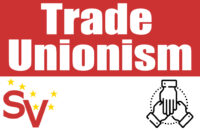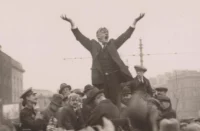The biennial delegate conference of the ICTU is being held in Dublin on 2, 3 and 4 July. It will debate and formulate policy and goals for member-unions for the next couple of years.
There is no doubt that falling union density and the high age profile of the membership are serious concerns for unions. Major changes are needed to reverse this trend.
When trade unions originated back in the mid-1800s they were considered, and even referred to in law, as criminal conspiracies. Employers at the time were openly hostile to sharing profits with their workers. The advent of trade unions eventually gave some power to workers and weakened the position of the employers, but they were not defeated; and it was only through many years of struggle by organised workers that gains were eventually made.
Times and terminology may have changed, but relations between employers and employees have not. Employers’ sole purpose is to maximise the profit from employees’ labour.
Employers have learnt over time how to achieve this less controversially, but the results are the same. Today, inequality is at a record level, with no end in sight. According to the Central Bank, the richest 10 per cent of Irish-resident financial asset-holders (those with shares, financial investments, or deposits) now have €50 billion more than at the peak in 2006. So “austerity” worked very well for them.
At the same time as this growing inequality and erosion of working conditions, union density is at its lowest. And these two facts are related.
Little by little, the rules of engagement were changed. The carrot-and-stick approach was used to lull workers into a false sense of security. They are allowed to join unions—but employers don’t have to recognise them. “Social partnership” was agreed between unions, the state, and employers’ organisations. National pay agreements were entered into. This led to an end to negotiations on a company-by-company basis. This in turn led to less industrial action and fewer strikes.
The jewel in the crown was the Industrial Relations Act (1990), which took large areas of control and decision-making away from unions and their members and left them in the hands of employers and the courts. It also banned many of the tactics used by unions to achieve the gains won in the past, such as secondary picketing, support strikes, sit-ins, political strikes, and a plethora of other methods that had been successfully used in struggle.
The velvet war against union power was complete. Unions were no longer in the front line of struggle but had morphed into a support service for workers. This weakened the unions as they became involved in cosy national negotiations. They took their eye off the ball as, bit by bit, working conditions were eroded, inequality skyrocketed, and precarious employment replaced the permanent, pensionable jobs that had been secured through years of sustained union struggle.
With short-term contracts, minimum-hours contracts, bogus self-employment, and the “gig economy,” conditions have come full circle. Employers have brought working conditions for the majority of those now entering the work force right back to where they were when workers began to organise 150 years ago. The present generation of workers have no experience of radical union struggle and its victories.
It’s time for the trade union movement to go back to basics. We need to fight precarious working conditions, as our predecessors did. These battles will not be won in the board room but on the shop floor.
For workers to tip the balance of power away from employers, the 1990 act has to be abolished so as to give workers power over when and where they take action.
But there is nothing like poverty wages and poor working conditions to radicalise workers. History has a habit of repeating itself, and we must learn from it. Four unions have passed motions at their delegate conference calling for the 1990 act to be abolished: Mandate, Connect, Fórsa, and Unite.
The narrative has developed that the right to union access, union recognition and full collective bargaining will solve all our problems. These rights are certainly necessary for workers to tip the balance of power in their favour. We also need weapons to fight with, and that weapon is the right to strike, when and where workers choose to—not at a time that best suits employers.
Profit is the goal of employers. If unions have the power to hit their pockets by not allowing them to prepare in advance through excessive notice periods and endless court injunctions, they will have to take notice of demands. The threat alone will force them to take notice.
Working conditions are not the only thing that is destroying the lives of working people. The crisis in housing and in the health service and the slashing of all state services have pushed living standards back to levels not seen for fifty years. Back in the 1970s unions successfully called workers out onto the streets to demand tax reform. That was when union density was high, before the 1990 act, when unions could strike for political reasons and had the confidence to do so.
Unions need to lead from the front: to be seen to be confident, strong, and willing to fight for their members, and not only on pay but on all aspects of workers’ lives. We cannot do this unless we have the power to do so. Union recognition on its own is useless if our hands are tied behind our backs by legislation.
Politicians have abandoned ordinary working people. It’s up to the trade union movement to fight for decency in workers’ lives, along with better pay and conditions, to end the crisis in housing and the health service, to bring an end to precarious employment. Then, once again, workers will be proud to wear their union badge, as they were when Larkin and Connolly instilled pride, hope and confidence in the working class.
An extra 1 per cent in a pay deal helps workers. Abolishing the Industrial Relations Act will empower them.
Unions will have to become radical or become redundant.






